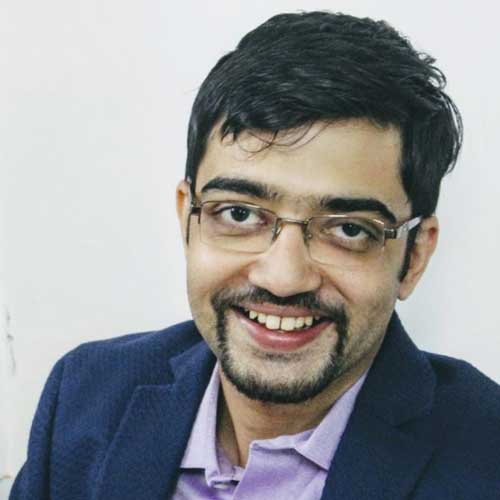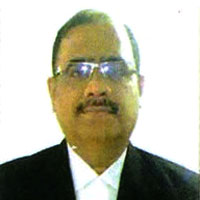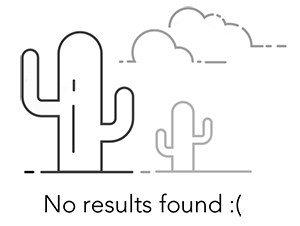Introduction
Do you know the amount of settlement in Apple Inc. vs. Samsung Electronics Company Ltd., one of the most celebrated intellectual property rights battles?
The parties agreed to settle for a whopping amount of approximately $548 million.
Dreaming of being involved with such high profile, high stake IPR battles? With an increasing amount of damages awarded in patent litigations, there is always a demand for patent lawyers who can understand and manage proceedings. Accordingly, the lawyers who appear in patent litigations charge a hefty legal fee and the work is financially rewarding. Not that anyone can simply become a patent lawyer anytime and charge such fees, but we will go there later. Right now, what can be said is that there is going to be a demand, particularly in sectors such as pharma and technology, if you do understand very well how the patent laws work.
In India, a large number of patent litigations are related to mobile phone companies, pharmaceutical companies, and the renewable energy sector. In-house lawyers in these companies cannot afford to be away from understanding how patent claims are drafted and how the litigation in these areas works. If the core assets of your employing entity are patents, you must know very well how to use as well as protect these.
The story does not stop there. Litigation is just the tip of the iceberg. The number of patent applications filed in India annually has been increasing rapidly. The interesting thing to note is that the number of patents granted is very low as compared to the number of applications made. In the year 2017-18 alone, a total number of 47,854 applications were filed, out of which only 13,045 were actually granted patents (see here). This points towards the need of more efficient filing and prosecution, and towards a requirement of professionals who can draft bespoke claims, specifications and abstracts tailored according to the invention and the field that it belongs to.
The inventors often approach the professionals with mere prototypes of inventions without really knowing whether an invention is patentable or not. Developing the invention further and conducting patentability search is another important task to be taken up by the practitioners. Other than conducting novelty searches, the practitioners also have to conduct patent mapping and scouting work for tech companies in order to gauge the scope of a particular technology.
From filing the application till the grant of the patent, one is required to overcome various office objections and third party oppositions. Patent prosecution is a highly extensive and demanding process which requires one to have particular skill sets in order to be able to defend their clients’ applications before the patent office.
Such opportunities can also be found on freelancing platforms by patent law professionals thereby allowing them to monetise upon their skills, bid on projects, and connect with clients seeking patent-related services.
These platforms enable professionals to collaborate with clients and colleagues across the globe, expanding their reach and opportunities beyond local markets. This enhances their skills, broadens their experience, and keeps their work engaging and dynamic. Moreover, many freelance legal services can be performed remotely, allowing lawyers to work from anywhere. This can lead to a better work-life balance.
The pharmaceutical industry has been incessantly working on developing vaccines for the cure of Covid-19. A lot of companies are racing towards finding a remedy to the virus and getting the vaccine protected. Once the vaccine is invented and protected, the rate at which it shall be licensed is unfathomable. The industry is in need of patent practitioners more than ever. This is a great time to step into the field.
In today’s scenario, software, technology and pharmaceutical companies have been actively filing patent applications. If an invention pertains to a software, extra caution has to be practiced as software programs are not patentable inventions per se. In such cases, the practitioner is required to figure out ways to get it patented. He/she has to prove that the invention is more than a mere mental act and is associated with a hardware. Creativity in drafting the specification becomes extremely important here.
Other than all the work generated through patent registration and enforcement, there is a great deal of work with respect to monetization of patents. This can include advice on and drafting agreements relating to licensing and assigning of patented technologies. Many tech giants enter into cross licensing agreements with each other in order to make use of the patented technology in their products and to avoid the costs of litigation. Tech and pharmaceutical companies own a lot of patents which requires valuation and management of the portfolios. All this work is highly lucrative.
If you do dream of working in the area of patents (which is probably why you read up to here), , here are a few questions for you:
- Do you want to get into an intellectual property law firm as a patent attorney?
- Do you want to end up as an in-house counsel in a tech or a pharmaceutical company?
- Have you already cleared your patent agent examination but are now looking to take on the legal processes involved in registration and prosecution?
- Have you got a science degree and now dream of making it big as an in-house patent analyst or a patent consultant?
Since you have asked yourself these questions, and have (hopefully) come to some definitive answers, let’s look at the thoughts that can stop you in your way to achieving the above:.
- Do you think that your college didn’t really skill you when it comes to the practical application of patent law and that this is something that you badly need to acquire now?
- Do you think that in order to get work in the domain of patent law and understand it, it is inevitable to have a science background?
- Do you believe that if you haven’t worked in patent law since you started your career, you would need a number of years to make it anywhere in this area and therefore it is too late for you to venture into it now?
- Do you feel that it is really difficult to make a shift to patents after working in other domains of intellectual property such as trademarks?
- Have you been practicing patent prosecution for a while, but the move to litigation seems like that elusive goal which is difficult to touch?
If any of the things mentioned above describes how you feel, the breaking news is that all of these notions aren’t really true and can be dispelled, if you’re just willing to give it what it takes.
We dug up a little deeper and found some common myths about building a career in patent laws and here we debug the inconsistencies in those myths:
Registration work is kind of all you can get and that should have to suffice.
While being well versed in the patent drafting and registration work can pay off, it is not the only requirement that a potential client might have and so it’s definitely not all you can get.
Right before even getting to the stage of registration, clients may need advice on whether or not their invention is patentable in the first place. It’s a question that can be faced multiple times by the likes of pharmaceutical, chemical, technology etc. companies.
Rarely an inventor exists who does not want to monetise his invention and therefore, it's highly likely that patents are followed by requirements for advice on licensing transactions and drafting of licensing agreements or deeds of assignment.
You could also think of how to gear up to take on opposition and litigation work..
Companies which tend to secure a large number of patents and are looking to monetise it would also need advice on how their patent portfolio can be managed.
I need to adopt the grind for a few years of training at a firm or in a company (or training from a senior at an internship) to learn practical work
There’s a basic flaw in this belief. How do you believe the company or the senior will themselves get to do all the work that you want to learn?
They will only pass on to you whatever they are getting and in that too, you may be involved in only specific parts of the deal. It is quite difficult that you will be involved in the process from A to Z right from sourcing the client to billing.
The focus should not be on the number of years invested but rather on the skills learnt. You don’t need to do grind work for a number of years to acquire specific skills. However you should have the experience of actually doing it, grappling with it and trying to find your way out of it and then it does not matter whether you learn it in a few months or a few years. If you get to learn some skills highly in demand in one month rather than just briefly be exposed to something about the work during a full year, you are winning!
I did not focus on patents in college; it’s too late to learn about this area now.
It is never too late to learn something new. You can take up patent work even after having practiced in some other field of law as a professional. Patent law does not comprise completely alien concepts and is based on the general principles of science as well as law, which, if keenly pursued, are not impossible to learn.
Often, it is believed that if you did not choose science as a stream during your initial schooling years, it will now be difficult to go back and take up patent laws because it requires an in-depth understanding of scientific principles before you could understand inventions and patents.
That however, is not the case. It is possible to dig into a specific invention and attempt to understand its specific features and properties, even if you are not from the science background, but you would need to keep up with your reading and work towards it.
Money-back guarantee
If you take this course, follow it diligently for a month, do all the exercises but still do not find value in it, or not able to understand or follow it or not find it good for any reason, we will refund the entire course fee to you. It is a 100% money-back guarantee with only one condition, you must pursue it properly for a month. If you don’t find it valuable after that, get your entire money back. Refer to our refund policy here.
View Refund Policy
Here are some of our faculty members
Sutapa Jana
Registered patent agent, Acura IP services
Sneha Menon
Patent agent, Senior Associate at K&S Partners
Trupti Joshi
Consultant at K&S Partners
Kalyan Potukuchi
CEO / Director specializing in IP (Patent) Management and Project/Design Engineering at BKSAY WORKS PVT. LTD
Note:
This is an indicative list of our guest faculty members and not an exhaustive list. We may change the faculty members at any point based on availability.
Course Plan
Above prices are inclusive of all applicable taxes and charges.
 Standard
Standard
RS. 63000
incl. of all charges
View details
1 online live class/ week
2 practical or drafting exercises per week
Get digital access to entire study material
Access on LMS, Android & iOS app
Instructor feedback on assignments
Unlimited doubt clearing sessions.
Instructor led course with online live classes
Online exams (give exams as per your convenience on given time slots)
Certificate (by courier)
CV enhancement
Coaching for professional networking
Training for writing and publishing articles
Internship & Job Support
Interview preparation guidance
Access to updated content online for 3 years
Top students are recommended to law firms and companies (as applicable)








 Technology
Technology  PHARMACEUTICALS
PHARMACEUTICALS  MANUFACTURING
MANUFACTURING  Information technology
Information technology  Software development
Software development  Telecommunications
Telecommunications  Chemical industry
Chemical industry  IP consultancies
IP consultancies 
















 ADDICTIVE LEARNING TECHNOLOGY LIMITED
ADDICTIVE LEARNING TECHNOLOGY LIMITED











